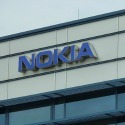
Also in today's EMEA regional roundup: ETSI unveils augmented reality spec; Cosmote goes with Ericsson for 5G RAN; Belgian operators granted temporary 5G licenses.
Never mind the quality, feel the width! That's one possible take on Nokia's new boast that it has declared more than 3,000 patent families to the European Telecommunications Standards Institute (ETSI) as essential for the 5G standard. As colleague Iain Morris wrote on these pages earlier this month, the whole 5G patents business is fraught with difficulty, with statements such as Nokia's saying little about the actual value of the individual patents, and no vendor able to prove it is the dominant force in 5G intellectual property, despite all the vendors' best efforts.
ETSI itself, meanwhile, has other standards fish to fry. Its augmented reality arm has unveiled ETSI GS ARF 003, which it describes as a "key specification towards the interoperability of AR components," describing "the functional building blocks of a generic AR reference architecture and their mutual relationships."
Greek operator Cosmote has gone with Ericsson for its 5G RAN needs. Cosmote, which is part of the Deutsche Telekom Group, is hoping to launch commercial 5G services in 2021. No other vendor will be involved on the RAN side.
The Belgian Institute for Postal services and Telecommunications (BIPT) has granted temporary licenses to the 5G-friendly 3600-3800MHz frequency band to five operators: Cegeka, Entropia, Orange, Proximus and Telenet. This measure was made necessary by the collapse of the previous government, which left Belgium lacking a regulatory framework for the frequency awards procedure.
Swiss operator Salt saw full-year revenue fall 2.3% in 2019 to 1.022 billion Swiss francs (US$1.046 billion), while EBITDA (earnings before interest, tax, depreciation and amortization) was down 8.6% to CHF428.4 million ($438.7 million). On a brighter note, postpaid mobile customer numbers rose 5,600 to 1,250,100 in the fourth quarter. During the year, Salt decided to pursue a dual network supplier strategy, bringing Huawei on board to keep Nokia, its existing supplier, on its toes.
Belgian operator Fluvius is continuing its network upgrade in the Flanders region, ordering up 750 of Teleste's AC8810 intelligent 1.2GHz optical nodes. According to Teleste, the nodes in question provide operators with fiber-level data transmission capacity, cost-effective operation and high redundancy.
The BBC Sounds app, which provides live and catch-up radio as well as "personalization" features, is to be made available on a number of connected TVs, beginning with YouView and Virgin Media devices. The app has more than 3 million weekly users.
— Paul Rainford, Assistant Editor, Europe, Light Reading
Read more about:
EuropeAbout the Author(s)
You May Also Like












